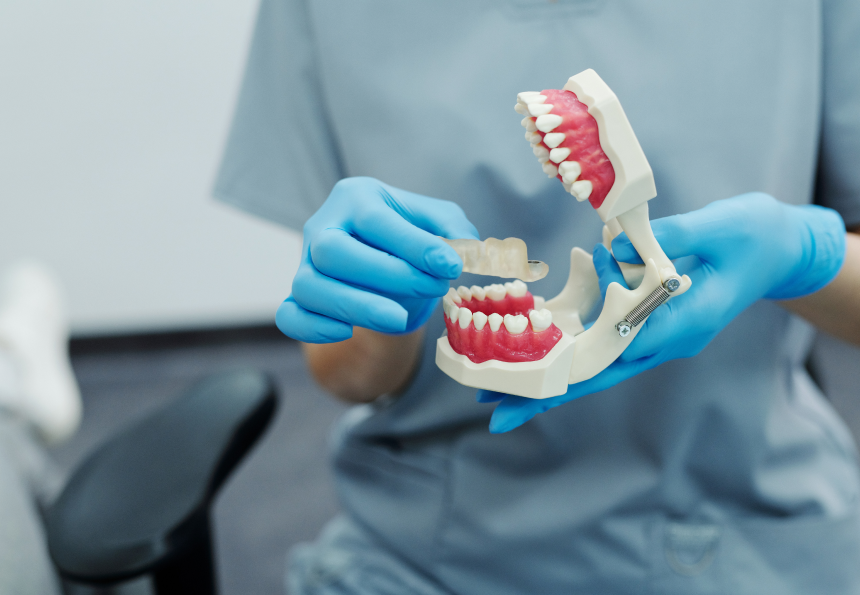What to Anticipate from Your First Visit to a Dentist in Eugene Oregon
Discover Frequent Oral Issues Your Dentist Can Solve
Understanding frequent oral concerns is vital for maintaining optimal oral wellness. Problems such as tooth cavities, gum tissue illness, tooth level of sensitivity, negative breath, and tooth degeneration are typical yet frequently forgotten until they become serious. Normal oral brows through and customized treatment plans can address these issues properly, making sure a much healthier and brighter smile.
Dental Caries
Dental caries, additionally called dental cavities, are a common oral wellness problem brought on by the demineralization of tooth enamel due to acid production from bacterial plaque. This procedure starts when microorganisms in the mouth metabolize sugars and starches from food, creating acids that wear down the enamel. If not resolved quickly, this erosion can penetrate much deeper into the tooth, impacting the dentin and at some point the pulp, potentially leading to extreme pain and infection.
The early stages of tooth cavity formation often present as white spots on the tooth surface area, indicating initial demineralization. As the procedure advances, these spots can develop into brownish or black sores, symbolizing a lot more substantial degeneration. Regular oral examinations are crucial for very early discovery, as dental caries in their inceptive phases can be treated with remineralization methods, such as fluoride therapies.
Once a tooth cavity has developed, corrective intervention is necessary. Dental practitioners usually eliminate the corroded part of the tooth and fill the tooth cavity with materials such as composite resin, amalgam, or ceramic. In a lot more extreme situations, a crown or origin canal treatment may be needed. Preventative procedures, including great oral health practices and nutritional modifications, play a pivotal function in mitigating the risk of cavities.
Gum Disease
While tooth cavities stand for a significant concern for oral health, one more vital concern that demands interest is gum tissue disease. Additionally referred to as periodontal condition, periodontal illness is an inflammatory condition influencing the cells bordering and sustaining the teeth. It is largely triggered by the accumulation of plaque-- a sticky movie of bacteria that creates on teeth.
Gum tissue condition proceeds through phases, starting with gingivitis, identified by inflammation, swelling, and bleeding gum tissues (dentist eugene oregon). If left without treatment, gingivitis can escalate to periodontitis, where the internal layer of the periodontal and bone pull away from the teeth, developing pockets that come to be infected. In time, the contaminants produced by the germs damage down the bone and connective cells that hold teeth in position, potentially leading to missing teeth
Early detection and treatment are vital. Professional dental cleansings and boosted dental hygiene practices, such as cleaning twice day-to-day and flossing, can manage gingivitis. For advanced phases, treatments might consist of scaling and root planing, antibiotics, or perhaps surgical treatments.
Normal oral exams play an essential role in protecting against and managing gum tissue disease. Dentists can identify very early indications and suggest appropriate treatments, ensuring the maintenance of healthy and balanced gums and general dental wellness.
Tooth Sensitivity
Tooth sensitivity impacts millions of people worldwide, offering an usual yet usually stressful oral problem. This condition occurs when the enamel, the outermost safety layer of the teeth, is jeopardized, disclosing the underlying dentin. The dentin includes microscopic tubules that lead straight to the oral pulp, where nerves stay. When revealed to stimuli such as hot, cold, wonderful, or acidic materials, these helpful resources nerves are activated, triggering sharp pain or discomfort.
Numerous factors add to enamel erosion and subsequent tooth sensitivity, including hostile brushing, acidic foods and drinks, gum economic crisis, and bruxism (teeth grinding) Additionally, oral treatments such as teeth whitening can briefly increase sensitivity.
Foul Breath
One more widespread dental problem that impacts people' daily lives is negative breath, clinically termed halitosis. Bad breath usually stems from bad oral hygiene, which enables food bits to remain in the mouth, cultivating bacterial growth.

Referrals may involve boosting dental health practices, such as regular brushing and flossing, using anti-bacterial mouthwashes, remaining hydrated, and addressing any type of dental issues. Reliable monitoring of bad breath not only improves dental wellness but likewise considerably improves top quality of life.
Dental Cavity

Stopping dental caries includes a combination of good dental health techniques and routine oral exams. Brushing teeth at least twice daily with fluoride tooth paste, flossing to remove plaque in between teeth, and restricting the intake of sugary foods and beverages are essential safety nets. Fluoride therapies, dental sealants, and professional cleanings supplied by a dental professional can additionally play a significant duty in strengthening enamel and preventing decay.
When dental cavity occurs, early treatment is key. Dental experts can eliminate decayed tissue and recover the tooth with fillings made from materials such as composite resin, amalgam, or porcelain. In even more advanced cases, therapies like crowns, origin canals, or extractions might be necessary. By resolving tooth degeneration without delay, dental experts assist protect oral structure and feature, ensuring long-lasting oral health.
Conclusion
Resolving usual dental problems such as dental caries, periodontal illness, tooth sensitivity, poor breath, and dental caries is crucial for keeping optimum dental health and wellness and general health. Dental professionals have the knowledge to detect and treat these concerns properly, making sure tailored take care of each patient. Regular dental examinations and precautionary procedures are vital in recognizing and taking care of these problems early, advertising a much healthier and a lot more positive smile over a life time.

Tooth degeneration, also recognized as dental caries, occurs when the enamel, the outermost layer of the tooth, is deteriorated by acids created by bacteria in the mouth. Brushing teeth at the very least two times daily with fluoride toothpaste, flossing to get rid of plaque between teeth, and limiting the intake of sweet foods and beverages are essential precautionary measures.Addressing usual oral worries such as dental caries, gum tissue condition, tooth sensitivity, negative breath, and tooth decay is vital for preserving optimum oral health and wellness and overall wellness.